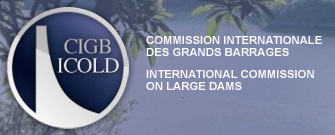The Study on Development Assistance in Water Sectors
Response to Water Problems in Developing Countries
FOREWORD
by: Takao Kawakami
President Japan International Cooperation Agency
It is said that 1.1 billion people in the world do not have access to safe water, and 2.4 billion are without access to appropriate sanitation. Not only is there a safe water supply problem, but there are also many other water problems such as water shortage, water pollution, floods, droughts, groundwater drainage / contamination, and disputes over international rivers. By the mid-21st century, when the world population is expected to exceed 9 billion, the water problems will be more critical than those of the oil crisis in the 20th century as the most urgent issue among others.
Under these circumstances, the international community has begun to take various measures, focusing on water problems. The Agenda 21, agreed at the 1992 United Nations Conference on Environment and Development (UNCED) held in Rio de Janeiro, pointed out that “water is essential not only to human beings but also to all ecosystems”. Subsequently, the World Water Council (WWC) was founded in 1996 and, at its initiative, the “1st World Water Forum” was held in Marrakech, Morocco in 1997. The “World Water Vision” was announced at the “2nd World Water Forum”, held in The Hague, the Netherlands in 2000 and the “3rd World Water Forum” will be held in Japan in 2003.
In response to the current water situation of the world, Japan International Cooperation Agency (JICA) organized from March to October 2001 internal review meetings involving senior water sector specialists and advisors. The objectives of these meetings were to classify comprehensively JICA’s past performance of cooperation in water sectors and to propose a fundamental plan for future cooperation in water sectors. In February 2002, the “Study Group on Development Assistance in Water Sectors” was established and, based on Japan’s experience and standpoint as a main donor, it has made various proposals on comprehensive water management and safe water supply in poverty areas.
The study group is composed of a chairperson, Professor Katsumi Mushiake, seven committee members, advisors, and a task force. Eight workshops have been held to date. This report has been compiled as a result of this study group’s work. It is my sincere hope that this publication will not only be fully utilized in executing Japan’s cooperation projects in the future, but that it will also be widely available to the relevant organizations.
I acknowledge deeply the efforts to arrange this report by Chairperson, Professor Katsumi Mushiake, all committee members, advisors, and the task force. I am also very grateful to the people who participated in the discussions of this study group.

















